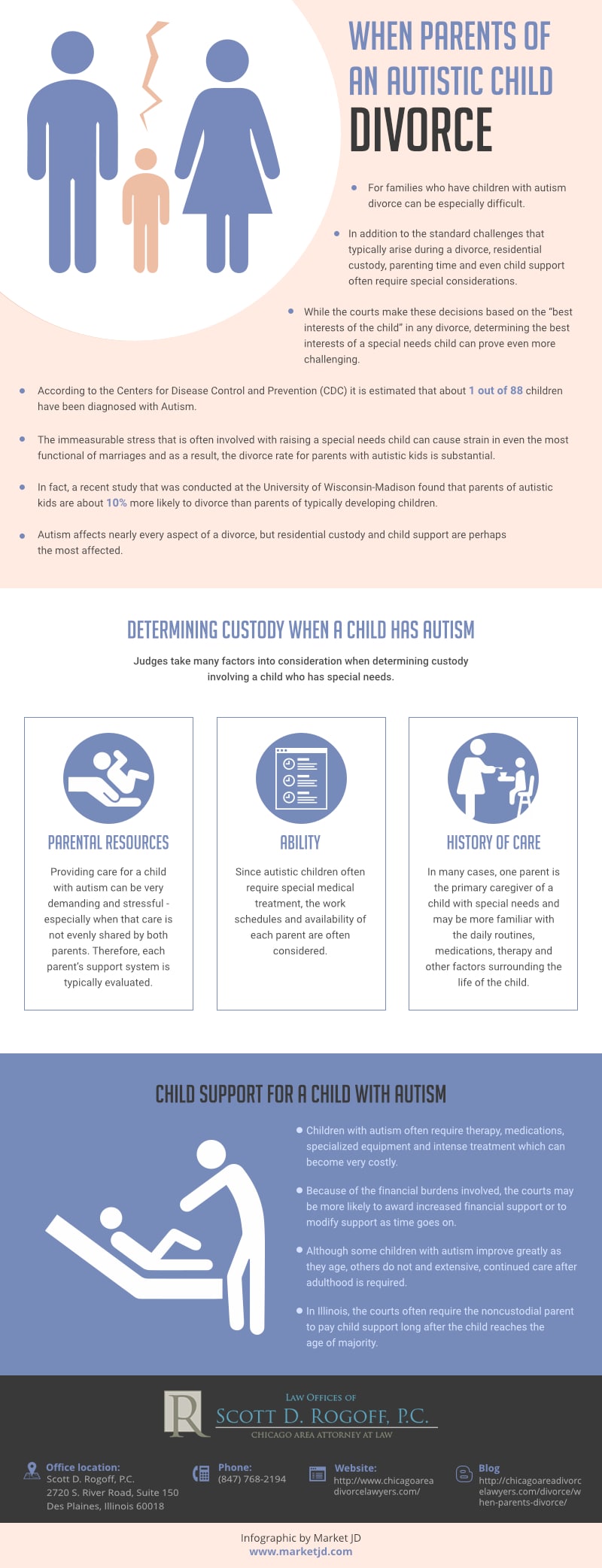For families who have children with autism, divorce can be especially difficult. In addition to the standard challenges that typically arise during a divorce, residential custody, parenting time and even child support often require special considerations. While the courts make these decisions based on the “best interests of the child” in any divorce, determining the best interests of a special needs child can prove even more challenging.
Table of Contents
Toggle(Article continues below Infographic)

According to the Centers for Disease Control and Prevention (CDC) it is estimated that about one out of 88 children has been diagnosed with Autism. The immeasurable stress that is often involved with raising a special needs child can cause strain in even the most functional of marriages and as a result, the divorce rate for parents with autistic kids is substantial. In fact, a recent study that was conducted at the University of Wisconsin-Madison found that parents of autistic kids are about 10 percent more likely to divorce than parents of typically developing children. Autism affects nearly every aspect of a divorce, but residential custody and child support are perhaps the most affected.
Determining Custody When a Child Has Autism
Judges take many factors into consideration when determining custody involving a child who has special needs.
- Parental Resources: Providing care for a child with autism can be very demanding and stressful- especially when that care is not evenly shared by both parents. Therefore, each parent’s support system is typically evaluated.
- History of Care: In many cases, one parent is the primary caregiver of a child with special needs and may be more familiar with the daily routines, medications, therapy and other factors surrounding the life of the child.
- Ability: Since autistic children often require special medical treatment, the work schedules and availability of each parent are often considered.
Child Support for a Child with Autism
Children with autism often require therapy, medications, specialized equipment and intense treatment which can become very costly. Because of the financial burdens involved, the courts may be more likely to award increased financial support or to modify support as time goes on. Although some children with autism improve greatly as they age, others do not and extensive continued care after adulthood is often required. In Illinois, the courts often require the noncustodial parent to pay child support long after the child reaches the age of majority.


